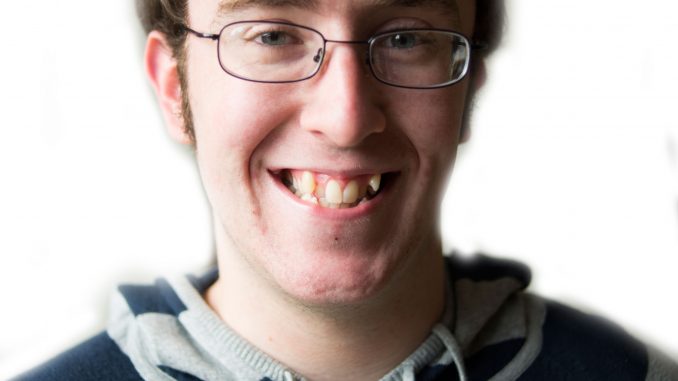
 Investors see a possibility of downgrading Temple’s credit rating in the future, but do not be alarmed.
Investors see a possibility of downgrading Temple’s credit rating in the future, but do not be alarmed.
Moody’s Investors Service, a company that rates the credit of various businesses, declared in a report last month that its outlook for Temple’s future credit rating had switched from stable to negative.
“The fact that Moody’s reaffirmed our rating is a great thing,” said Ken Kaiser, Temple’s interim chief financial officer and treasurer. “I’m thrilled to death about it. I wish it stayed stable, but I’m not going to worry about that so much.”
Why isn’t Kaiser worried?
A stable outlook means the university is doing fine, while a negative outlook means the rating could be downgraded in the future if certain things do not change. Currently, Temple University Health System is losing money: its operating costs are much higher than its revenues. Temple’s debt is $717 million, but when TUHS’ debt is added in, it totals $1.25 billion.
Temple University Hospital had its own credit rating downgraded by Moody’s to Ba2 in July.
According to the Moody’s website, the rating system, which awards business one of 21 rankings from Aaa to C, exist “to provide investors with a simple system of gradation by which future relative creditworthiness of securities may be gauged.” Businesses marked with a Ba2 rating represent “substantial credit risk.”
Moody’s cited the hospital’s “weak fundamental credit profile” as the reason for the downgrade. What made the credit profile weak included an “increasing dependence on supplemental Commonwealth funding” and “challenging demographics,” meaning many TUH patients are on Medicare or Medicaid.
When Medicare pays hospitals, it gives an extra sum to hospitals with a disproportionate amount of uninsured and Medicaid patients. Teaching hospitals also receive extra money to offset the costs of teaching. TUH, then, should have two bonus sums. Yet it is still in debt.
However, the July downgrade report said TUH had an “essential role as a safety net provider to Southeastern Pennsylvania, with an indispensability quotient in the City of Philadelphia.”
“It’s the necessary hospital for North Philadelphia,” economics professor Erwin Blackstone said. Without it, who else would provide health care for the area?
The debt of the university itself, Kaiser noted, isn’t that bad. He said that in business, there is good debt and bad debt. Debt is classified as “bad” when an organization is borrowing money just to stay afloat and pay its operating costs. “Good” debt is when money is borrowed for building up assets.
Though TUH has operating deficits and debt, it is fixed-rate debt, Kaiser said.
“If you had an adjustable rate mortgage, every five years the rate changes – that doesn’t happen for any of our debt,” Kaiser said.
Since all the debt is fixed-rate, a credit downgrade in the future would only affect Temple from a financial perspective if it borrowed more money, Kaiser said.
“For the Health System, it matters a little bit more because they have to recruit doctors, and doctors generate revenue,” he added.
Medical professionals may see TUH’s financial situation and be discouraged. Kaiser said this could slow down the strategy of ramping up revenues and diversifying the “payer mix.” In other words, the hospital might make less money because of its debt and attract more and more patients from a lower economic bracket. Ideally, Blackstone said, a hospital seeks a large variety of payers — some from private insurance, some from Medicare and Medicaid. The patients in TUH’s area, however, may not be able to provide a diverse payer mix.
“The university must devise a way of separating the hospital finance from that of the university or find a way of putting the hospital on a sound financial footing,” finance professor J. Jay Choi said in an email.
“We’re separate now,” Kaiser said. “[Moody’s would want the hospital to potentially be] sold to someone else, and then we would just have an affiliation agreement with them, but somehow there would be a 100 percent ironclad guarantee that no money will transfer from the university to the health systems.”
Kaiser said this guarantee is already in place, and the university and TUH are merely “strategic partners,” but Moody’s still believes in the possibility that Temple could bail out the hospital, thus the negative outlook.
The hospital’s deficits will not affect Temple’s biggest strength, which is high enrollment. The Class of 2017 is one of the largest ever, with the biggest group of freshmen in the past five years.
“Philadelphia is hot, and all this construction is going on and that makes Temple attractive to students, which is very important,” Kaiser said.
Whether Main Campus’ location, ranked the third poorest area of Philadelphia by The Pew Charitable Trusts’ 2013 “State of the City” report, can be seen as an asset is questionable. Nonetheless, the university seems committed to not assuming the hospital’s debt, contrary to the opinions of Wall Street strategists.
“While higher interest rates mean greater cost for the university, I’m relatively sure that students will not see an immediate impact,” said Ronald Anderson, chair of the finance department.
So, fellow students, don’t fret. The hospital’s rising debts and generally unfavorable outlook won’t affect you much – unless, of course, you want to work there someday.
Joe Brandt can be reached at joseph.brandt@temple.edu.



Be the first to comment